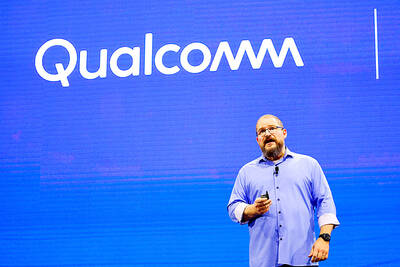A lot has changed since the US Federal Reserve hinted two months ago it might be finished cutting interest rates for a while. Credit has become harder to obtain, Wall Street has convulsed again and the housing slump has intensified.
As a result, policymakers at the central bank now appear to have changed their minds about the need to drop interest rates again.
The Fed had cut rates twice this year and officials suggested in October that might be enough to help the economy survive the credit and housing stress. Then the problems snowballed, leading Fed Chairman Ben Bernanke to signal one more cut might be needed.
Analysts expect the Fed to trim its key rate, now at 4.5 percent, by one-quarter of a percentage point at the meeting tomorrow.
Banks, financial companies and other investors who made loans to people with spotty credit or put money into securities backed by those subprime mortgages have lost billions of dollars. Investors in the US and abroad have grown more wary, thereby aggravating the credit crunch.
This has added to the turmoil on Wall Street and Fed officials say they must take it into account when deciding their next move to keep the economy growing and inflation low and promote a stable climate that benefits investors.
The Fed will also be trying to ensure the banking system is sound and financial markets run smoothly.
But some may believe that lowering rates means the Fed is bailing out investors and encouraging firms to make bad decisions.

Intel Corp yesterday reinforced its determination to strengthen its partnerships with Taiwan’s ecosystem partners including original-electronic-manufacturing (OEM) companies such as Hon Hai Precision Industry Co (鴻海精密) and chipmaker United Microelectronics Corp (UMC, 聯電). “Tonight marks a new beginning. We renew our new partnership with Taiwan ecosystem,” Intel new chief executive officer Tan Lip-bu (陳立武) said at a dinner with representatives from the company’s local partners, celebrating the 40th anniversary of the US chip giant’s presence in Taiwan. Tan took the reins at Intel six weeks ago aiming to reform the chipmaker and revive its past glory. This is the first time Tan

Qualcomm Inc is strengthening its partnerships with Taiwan Semiconductor Manufacturing Co (TSMC, 台積電) and original design manufacturers (ODMs) in Taiwan as it expands its presence in the artificial intelligence (AI) computer market, CEO Cristiano Amon said in Taipei yesterday ahead of the annual Computex trade show. “Historically we’ve always been a very big customer of TSMC, and we continue to be,” Amon said during a media Q&A session. “For chip manufacturing, we’re among the largest fabless [semiconductor designers],” he said, noting that Qualcomm, a leading provider of mobile and AI-enabled chipsets, ships about 40 billion components every year, with TSMC being

‘FAILED EXPORT CONTROLS’: Jensen Huang said that Washington should maximize the speed of AI diffusion, because not doing so would give competitors an advantage Nvidia Corp cofounder and chief executive officer Jensen Huang (黃仁勳) yesterday criticized the US government’s restrictions on exports of artificial intelligence (AI) chips to China, saying that the policy was a failure and would only spur China to accelerate AI development. The export controls gave China the spirit, motivation and government support to accelerate AI development, Huang told reporters at the Computex trade show in Taipei. The competition in China is already intense, given its strong software capabilities, extensive technology ecosystems and work efficiency, he said. “All in all, the export controls were a failure. The facts would suggest it,” he said. “The US

NEW PRODUCTS: MediaTek has been diversifying its product lines to minimize operational risks as mobile chips remain the company’s biggest revenue source MediaTek Inc (聯發科), the world’s biggest supplier of smartphone chips, yesterday said the tape-out process for its first 2-nanometer chip would take place in September, paving the way for volume production of its most advanced chip, likely to be its next-generation flagship smartphone chip, around the year-end at the earliest. MediaTek has been leveraging advanced process technologies from its foundry partner, Taiwan Semiconductor Manufacturing Co (TSMC, 台積電), to build its flagship mobile phone chips, a segment it once relinquished and then recovered four years ago as it released its Dimensity series. In the semiconductor industry, a tape-out refers to the